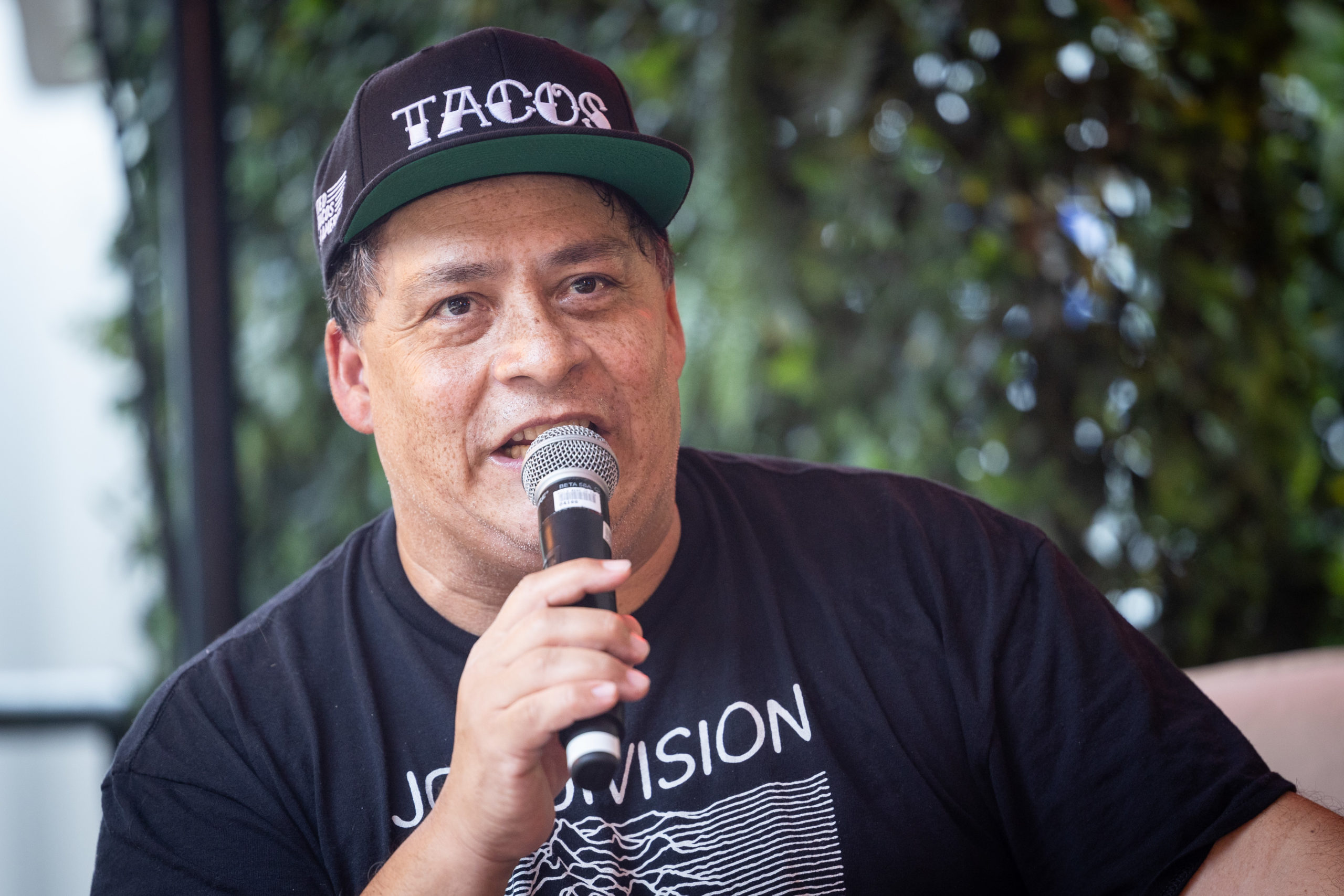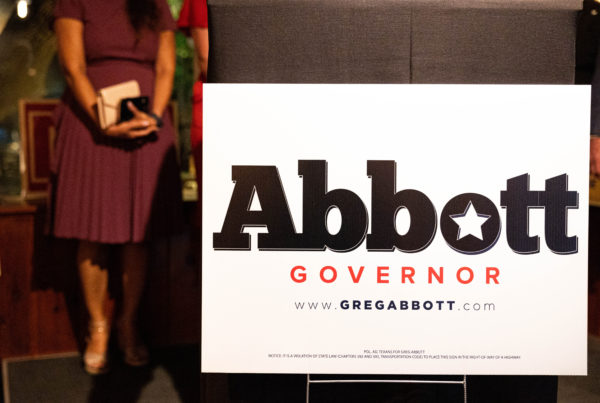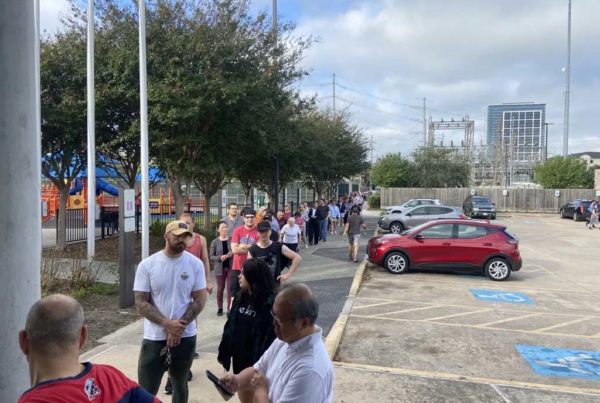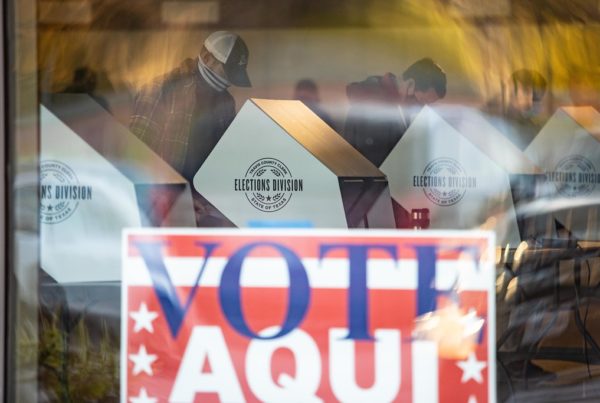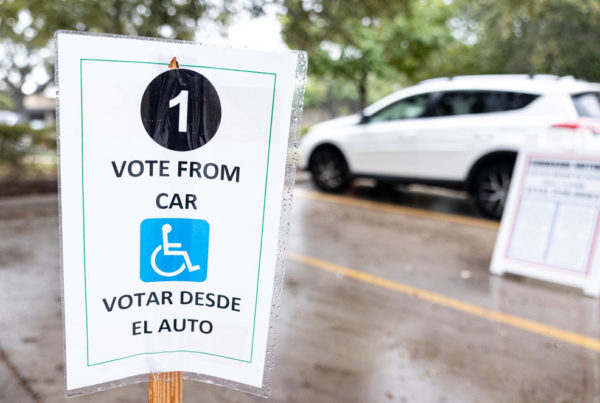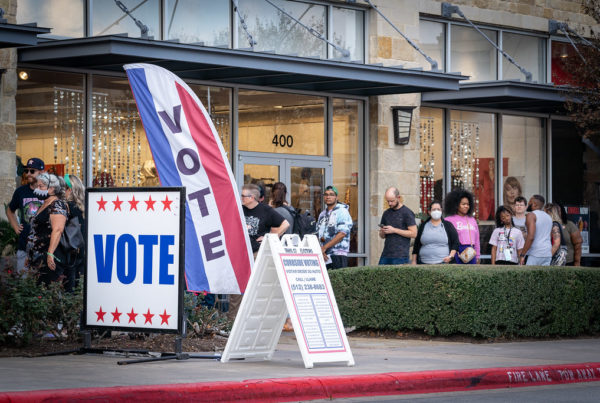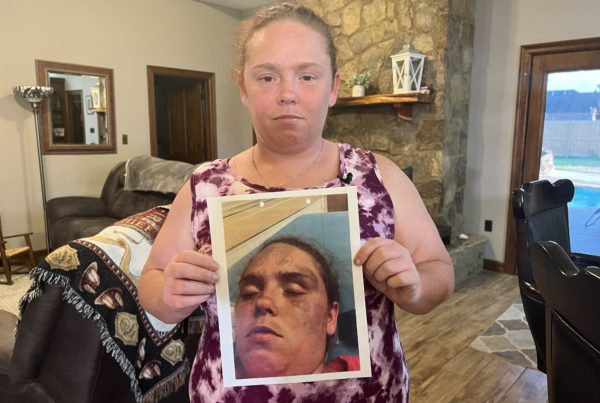Few food fans go as hard as taco fans when it comes to beef between cities on whose tacos are superior.
But for taco journalist and 2022 James Beard Award nominee Mando Rayo, it’s the human storylines that surround the beloved culinary staple in Texas that inspire his work. As host of the podcast Tacos of Texas, now in its second season, Rayo highlights some of the under-celebrated voices that get left out of celebrity chef culture – the migrant farmworkers, the immigrant and indigenous women, and the numerous family members that pass on recipes for generations.
Rayo joined the Standard to talk about some of these stories and what listeners can expect in the new season of Tacos of Texas. Listen to the story above or read the transcript below.
This transcript has been edited lightly for clarity:
Texas Standard: What’s shaking up the Texas taco world right now?
Mando Rayo: I don’t know if it’s shaking, but it’s definitely the foundation. It’s the people. It’s kind of like the people that you don’t hear about. It’s not the celebrity chefs because they get all the notoriety, but it’s the people in the back of the kitchens, whether it’s a Mexican restaurant or other. They’re the foundation. They’re the ones that are feeding us. They’re the ones posting up, you know, in a taco truck or trailer. It’s the people cultivating our foods of, you know, where we get our fresh vegetables. And it’s also women that are like at the core of a lot of these restaurants. But I don’t think they get the recognition they deserve.
I’m so glad that you’re bringing this up, because right now we’re living in this age of sort of the celebrity chef, right? And they get all the attention. Was there something that happened that made you think, “Wait a minute, wait a minute. We’re looking the wrong way.”
I’ve always really focused on let’s learn about the food, the culture through the people that are making it. And so, for me, it’s always been this long tradition of understanding who’s cooking and where are we getting our recipes from? Part of that is our families. You know those families that started cooking at home and started a truck or a trailer or a restaurant. And so for me, it’s really this focus and shining the light on something that’s always been there. You know, where do we get our recipes from? From our mothers, from our grandmothers, our sisters, our tíos and our fathers. They’re the ones that are hustling and creating these great dishes. Let’s honor where that food comes from.
You mentioned something a little earlier that I hope we could focus in on: You mentioned the farm workers, too. It’s not just the folks in the kitchen or our family.
Yes, that’s true. You know, when we think of the fresh foods – the fresh vegetables and fruit that we have for our dishes and our meals – we often forget who’s picking, who’s cultivating that food in hot weather, extreme weather, harsh working conditions. It’s migrant farm workers, you know, and it’s immigrants largely. They don’t stop, you know, for the holiday. And so this idea of really honoring and paying respect to who’s picking your fruits and vegetables.
You mentioned that you’ve been talking about this on your podcast, Tacos of Texas. I understand you’re in season two right now. What else are y’all digging into this season?
You know, we took a trip down to El Paso, my hometown. We call this episode “Las Jefecitas,” or “the Lady Boss.” It’s basically using food to sustain immigrant households. It’s an alternative economy, cash-based economy, where, you know, we went down there and we searched for the burrito ladies because in El Paso there’s a lot of burritos. And as well, as you know, we go to Café Mayapán in El Paso, in the Chamizal area … It’s a nonprofit that is really community-based. They train immigrant women and indigenous women on, you know, how to run restaurants. And then hopefully, from there, they can take those skills so they can form their own businesses.
So you have like episodes like that. We really dig deep. You know, we don’t just stay surface level of like, “oh, here’s the next big place,” and it’s, you know, our style. We use tacos as a Trojan horse to understand people and their communities. So that’s where we really dig into in this season for sure.


